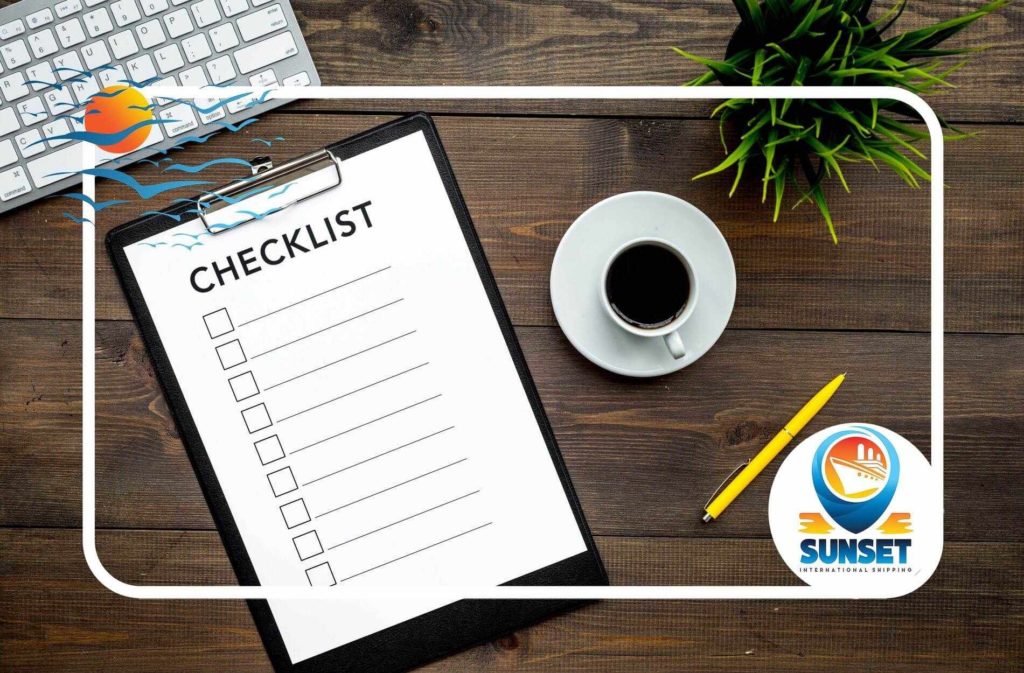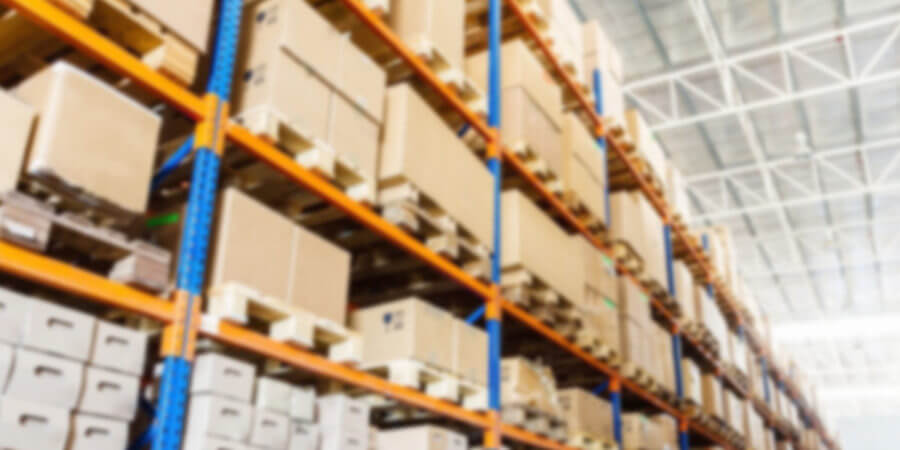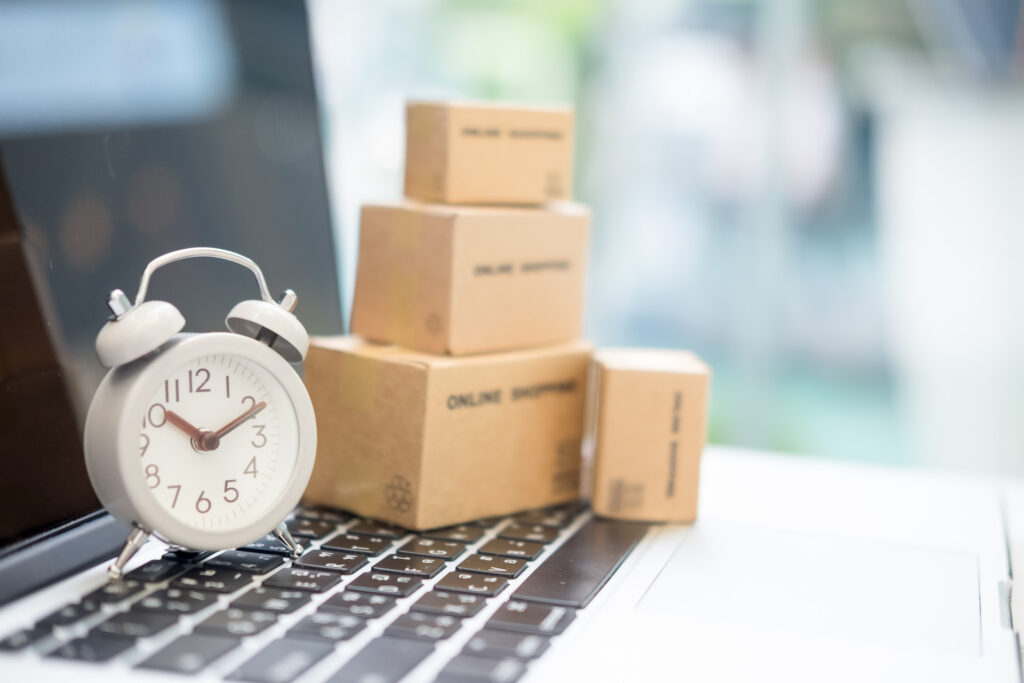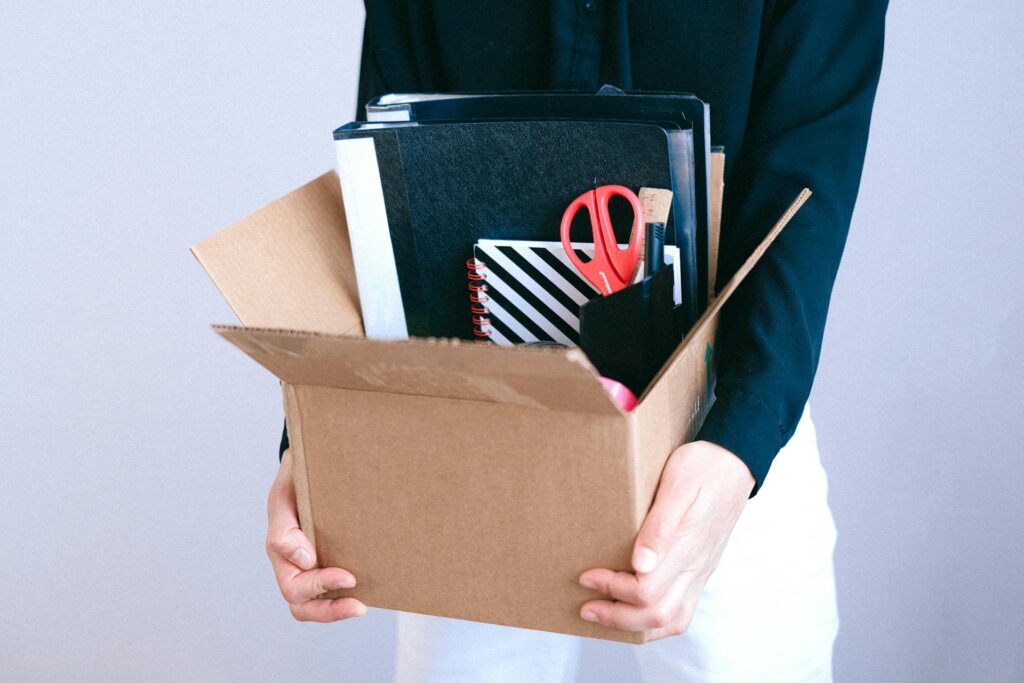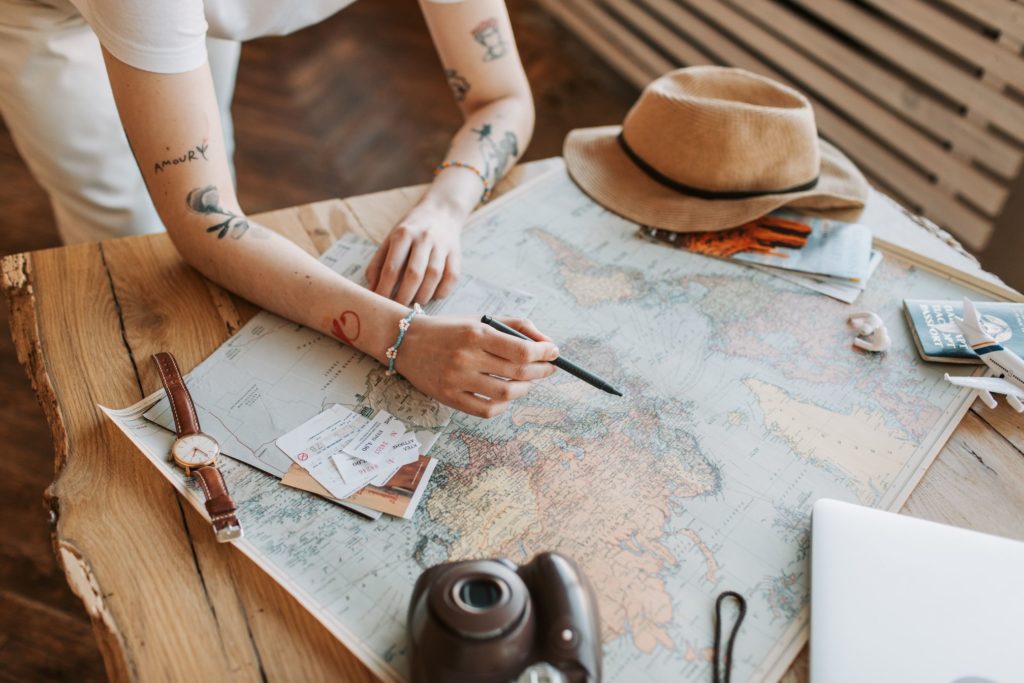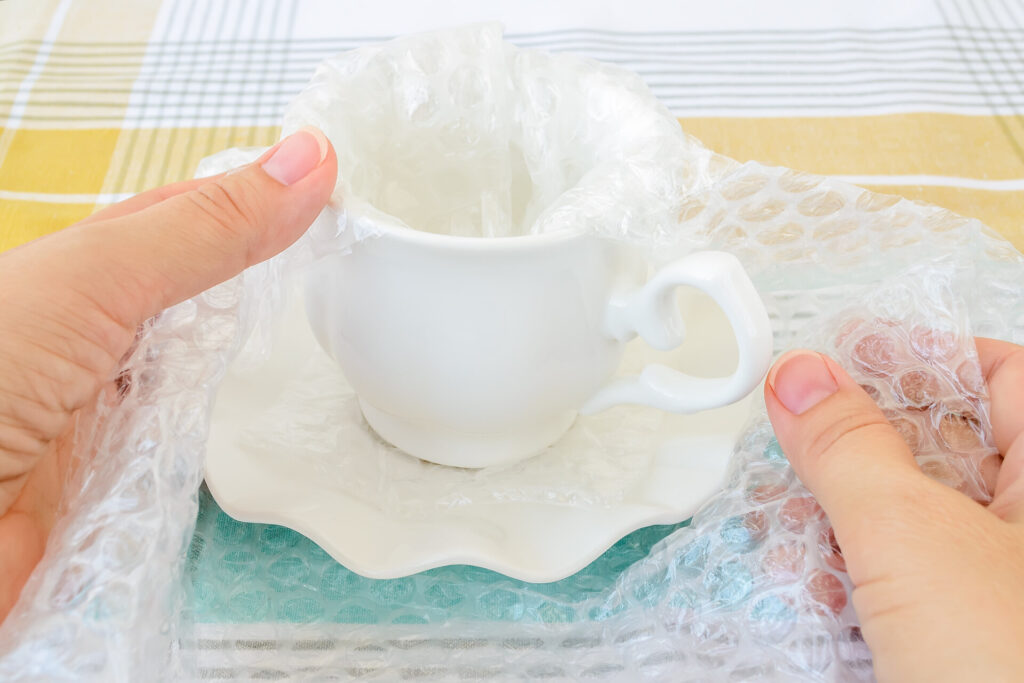Boxing up before relocating can be a daunting task, but with the right strategies and techniques, you can make the process much easier and more efficient. In this blog, we’ll share some expert packing tips for moving to ensure your belongings arrive at your new home abroad in good condition. These tips will help you make the most of your packaging experience and ensure a smooth transition to your new home – so make sure to memorize them all.
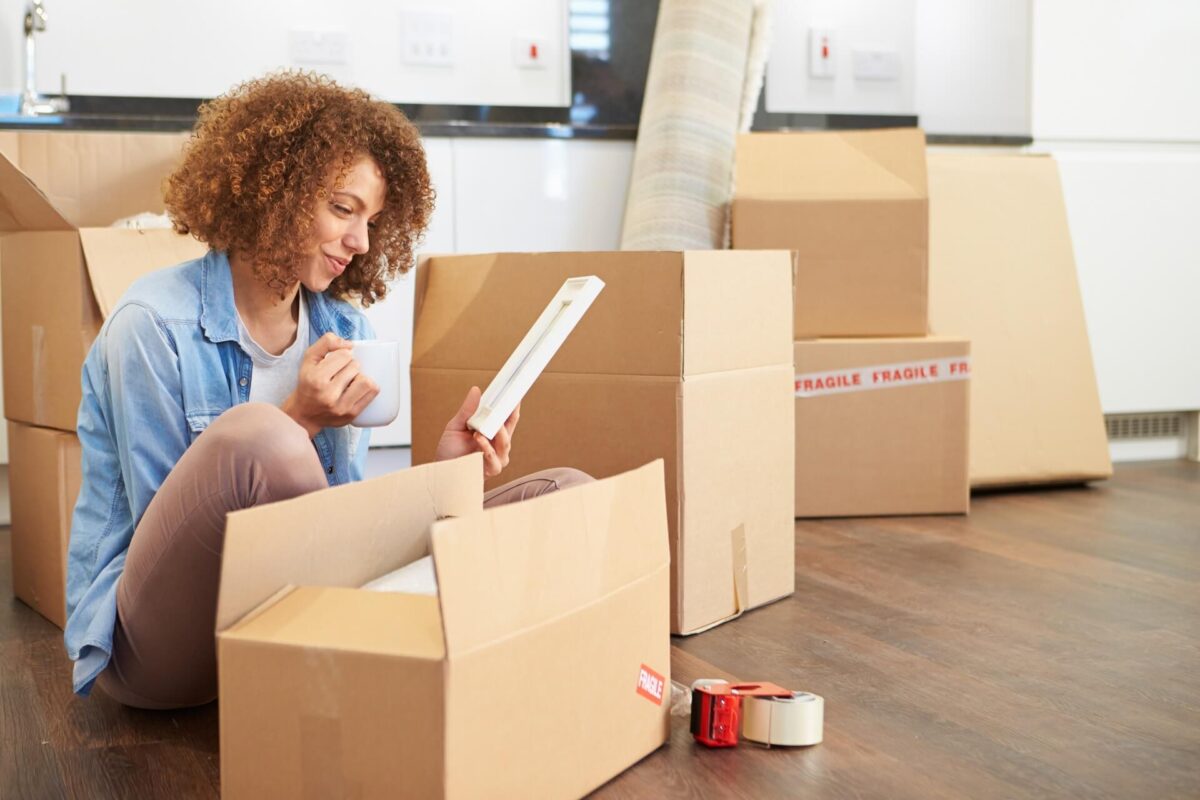

Why Moving Overseas Requires Meticulous Packaging and Planning
Moving overseas involves a complex process of preparing for a long-term stay in an unfamiliar country. It is important to take the time to research documents needed to travel abroad, visa requirements, transportation arrangements, housing options, and cultural customs in order to make sure that the relocation goes smoothly and successfully.
When boxing up, it is important to plan ahead and take into consideration the climate and culture of the new location. You need to ensure that you have all the necessary items for your journey as well as clothing, shoes, and other personal items appropriate for the local environment. It is also important to consider restrictions on certain types of items like electronics or alcohol in order to make sure that they are allowed into the country. Finally, it is important for those who plan to live abroad to familiarize themselves with the culture and customs of the destination country.
Before Learning Tips for Packing to Move – Decide What to Do With Your Stuff
Moving internationally can be an exciting and overwhelming experience. There are many things to consider, from finding a new home to coordinating the relocation itself. However, one of the most important steps to take before using some of the best packing tips for moving is to decide what to do with your stuff. Taking the time to declutter when relocating to a new city abroad can make the boxing up and relocation process more manageable and less stressful. This step will help you streamline your packaging process and save time, effort, and money.
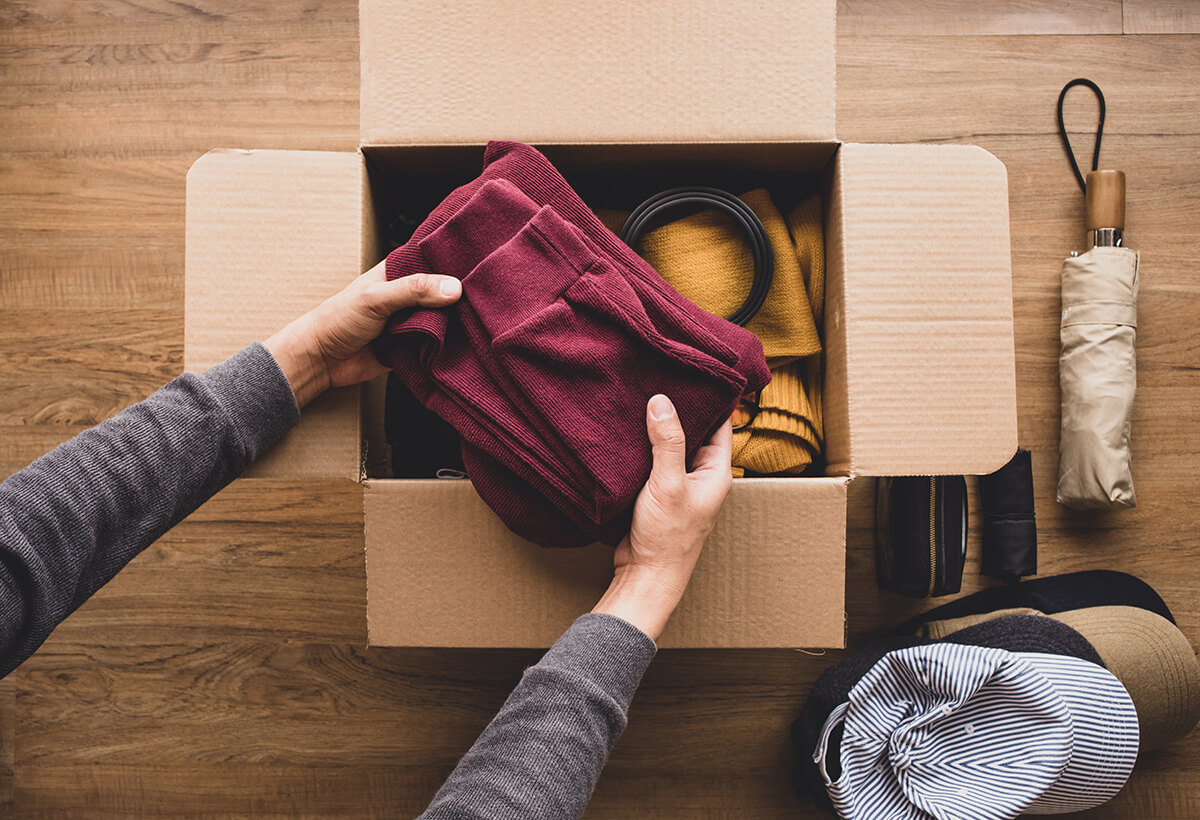

Decide What to Pack and What to Leave Behind
Deciding what to pack when moving abroad and what to get rid of is crucial for several reasons. First and foremost, it can save you a considerable amount of money on shipping overseas. The cost of an international relocation is often calculated based on the weight and size of your shipment. By bringing only the relocation essentials and leaving behind non-essential items, you can make your relocation more comfortable and less stressful.
Secondly, customs regulations in different countries can be strict and may restrict certain items from being imported. It’s essential to research the customs regulations of your destination country and ensure that you’re not boxing up any prohibited items. By leaving behind items that are not allowed to be imported, you can avoid the risk of your shipment being confiscated or facing fines and penalties.
Sell or Donate the Things You Don’t Want to Pack
Donating items to charity or giving them to friends and family can be a great way to help others. You’ll feel good knowing that your unwanted items are going to someone who can use them. On the other hand, unwanted items can help you earn some extra cash to put towards your relocation. You can hold a garage sale, sell items online, or take them to a consignment store. But how to decide which items to sell and which to donate? Take a look at the video below for some valuable tips:
Gather Some Essential Supplies for Moving Abroad
Having the right packaging supplies can make the process easier and reduce the relocation stress you’re experiencing. Here are some essential supplies you may need for an international relocation:
- Boxes
- Tape,
- Bubble wrap
- Packing paper,
- Foam peanuts,
- Labeling tools,
- Scissors,
- Relocation blankets,
- Lifting straps or relocation dolly (if you plan to relocate on your own).
You Can Buy, Borrow, or Improvise Packaging Materials
There are several ways to get the materials you need. The most straightforward option is to buy supplies from an online retailer or local office supply store. This may be the most expensive option, but it ensures that you have access to high-quality materials. If you’re having a last-minute relocation and don’t have time to buy supplies, know that hiring a professional like Sunset International Shipping will get you all the supplies you need.
If you have friends or family members who have recently moved, ask if they have any supplies they no longer need, such as boxes or bubble wrap. Borrowing boxing up materials can be a great way to save money and reduce waste – just ensure they are in good condition. If you’re relocating on a low budget, you can improvise with materials you already have. For example, you can use blankets, towels, and clothing to wrap up fragile items or use trash bags to protect clothes and linens. You can also use suitcases, duffel bags, and backpacks to pack clothes and other non-fragile items.
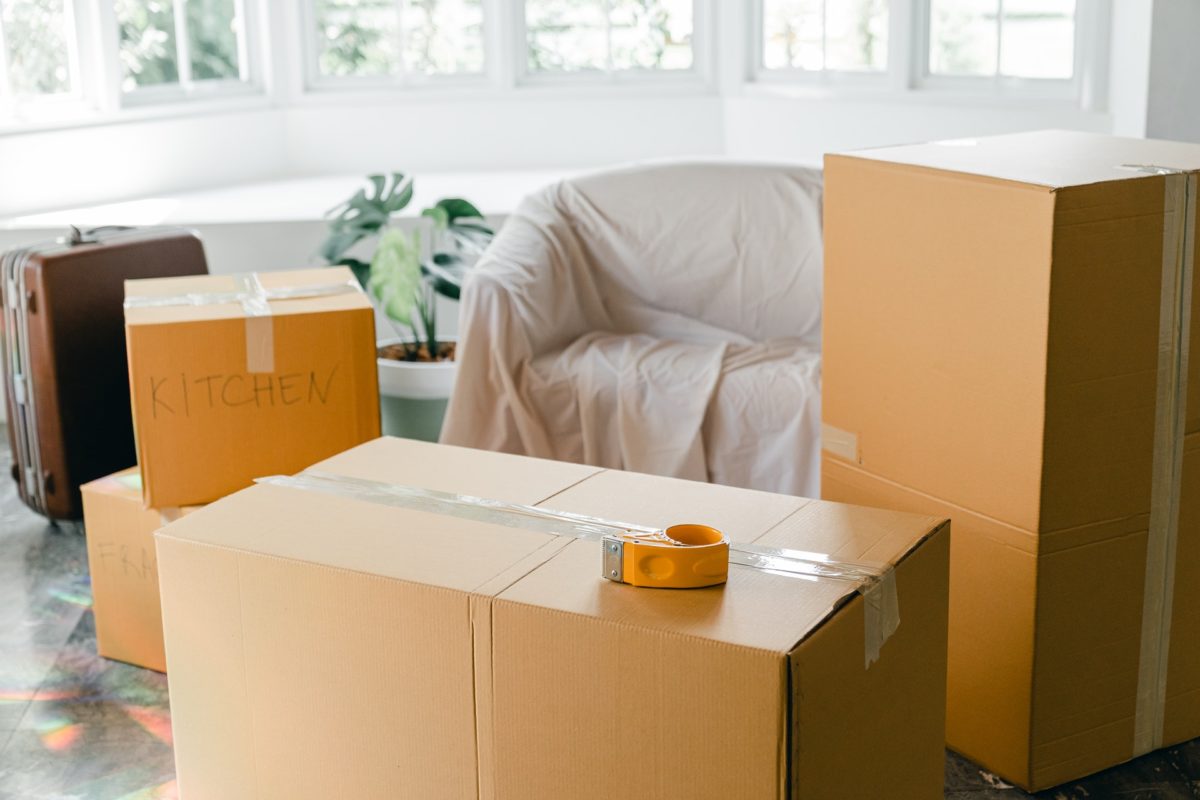

The Best Packing Tips for Moving Include Boxing up Room by Room
Room-by-room approach helps you stay organized and ensures that you don’t forget anything important when boxing up all of your belongings. But do you know how to do it right? Just follow these tips for packing to move.
Start From the Room With the Bulkiest Stuff
Packaging the bulkiest items first means you can get them out of the way and free up space for boxing up smaller items. At the same time, dealing with bulky items can be physically and mentally demanding. Starting with the most challenging room can help reduce stress and make the rest of the process feel more manageable.
Separate the Essentials for a Special Box
The essential box should contain the items that you’ll need immediately upon arrival at your new home and that you don’t want to risk misplacing or forgetting. These belongings should not leave your side during the relocation, so you need to box them up separately. Here are some tips for what to include:
- Important documents – passport, driver’s license, birth certificate, and any other important paperwork,
- Medications – bring enough of any necessary prescription medications, as well as any over-the-counter medicines you may need,
- Toiletries – toothbrush, toothpaste, soap, shampoo, and any other personal hygiene items you’ll need right away,
- Clothes – box up a change of clothes for each member of your household,
- Electronics – any essential electronics you’ll need, along with their chargers,
In the end, don’t forget to prepare some non-perishable snacks and a few bottles of water to keep you energized and hydrated during the relocation.
How to Protect Your Belongings for Shipping Overseas
Sturdy boxes are made of high-quality materials that are designed to withstand the rigors of shipping. They are less likely to become damaged during transit, ensuring that your belongings remain safe and secure. Sturdy boxes are compatible with various shipping methods, and they are a good choice whether you decide to move by sea or plan on moving by air.
Wrapping materials such as bubble wrap and packing paper provide a cushioning layer around your items, protecting them from impact and vibration during transit. This helps to prevent scratches, dents, and other types of damage that can occur during shipping.
Duct tape can provide extra reinforcement for boxes and other packaging materials, reducing the risk of them breaking open during transit. This is particularly important when packing fragile items. The dispenser makes it easier to apply the tape evenly, reducing the risk of it coming loose during transit.
Labeling your boxes helps you keep track of what’s inside each box, making it easier to organize your belongings and locate specific items. This can save you time and energy when unpacking at your new home. Additionally, when you label your boxes, you can include instructions on how to handle fragile items, which will help prevent damage to your items and ensure the safety of anyone handling the boxes during transportation.
Give Fragile Items Extra Protection
When you plan to relocate across the world, it’s crucial to take extra precautions to protect your fragile items. Shipping items across long distances and through various modes of transportation can increase the risk of damage to delicate objects. Packaging glasses and other kitchenware, artwork, and antiques demand a lot more of your attention due to their delicate nature. Extra protection is necessary to prevent them from breaking, cracking, or chipping during transit.
The best course of action would be to get packing services from an overseas shipping company. International movers have experience and skills in packaging dishes and other tricky items. However, if you’re against it, make sure you find the best relocation tips for dealing with delicate objects.


Allow International Movers to Pack Your Belongings for Overseas Shipping
A professional international moving company such as Sunset International Shipping has the experience and expertise needed to pack and prepare your belongings for overseas shipping. We are familiar with the customs regulations, packaging requirements, and other legal formalities that need to be completed before the shipment can be transported. This knowledge can help you avoid any potential delays or complications that could arise from improper boxing up or documentation.
Additionally, international movers from an overseas shipping company use specialized packaging materials designed to protect your belongings during transportation. Finally, boxing up your belongings for an overseas relocation can be a time-consuming process, especially if you are not familiar with the proper packaging techniques. International movers can save you time by handling this process on your behalf, allowing you to focus on other aspects of the relocation.
Great Tips for Packing for a Move Are Often Simple Yet Effective
By implementing some of the relocation hacks we mentioned above, you can make the process more efficient, organized, and stress-free. From decluttering and prioritizing your items to using the right materials and labeling your boxes, there are many ways to simplify your packaging process and ensure that your belongings arrive safely at your new home. The key is to plan ahead, stay organized, and take the time to pack your items carefully. Of course, if you decide that this is all a bit much for you, you can always contact us. Let us deal with both transporting and boxing up part of the process – and relocate abroad without a worry on your mind.
Frequently Asked Questions About Packing Tips for Moving
When it comes to boxing up for relocation, the first thing you should do is create a packaging plan. Start by assessing your belongings and deciding what you want to keep and what you want to get rid of. Once you have a clear idea of what you’re taking, create a relocation inventory and prioritize the items that are most important.
The first step when planning to move to another country is to get rid of any items that you no longer use, need or want. Next, prioritize your essentials and sentimental items that you cannot live without. Consider the available space in your new home, the climate, and the lifestyle you will be living. It’s also a good idea to think about the cost of shipping and the value of the items you plan to take with you – the fewer items you have, the more money you’ll be able to save.
One option to save money to move is to reuse boxes and materials from previous moves or from friends and family. You can also use items you already own, such as suitcases, backpacks, and baskets, to store your belongings. Another cost-saving option is to check with local stores or online marketplaces, such as Freecycle, for free or discounted supplies. Finally, consider using alternative materials, such as newspaper or towels, for padding and cushioning your items.
Packaging requires careful planning to maximize space and ensure that your belongings are protected during transport. Here are some creative tips for packing for a move you can use:
- Use vacuum-sealed bags for clothing and bedding to compress them and save space,
- Place small items inside larger ones, such as putting socks inside shoes,
- Use multi-purpose items, such as a trash can or laundry basket, to transport your belongings,
- Utilize the space inside drawers and cabinets by leaving items inside them during transport.
Start by clearly marking each box with a descriptive label that accurately identifies its contents. You can use different colored markers or stickers to help you quickly identify boxes that contain specific items. It’s also helpful to create an inventory list of all the boxes and their contents, so you can easily reference it when you’re looking for a particular item.
The first step is to choose appropriate materials, such as bubble wrap, packing paper, or foam peanuts. To avoid costly relocation mistakes, wrap each fragile item individually in several layers of protective materials, making sure to cover all sides and edges. Place the wrapped items in a sturdy box that is appropriately sized for the contents, and fill any empty spaces to prevent shifting during transport. Label the box as “fragile” or “handle with care” to ensure that it is treated appropriately.
Use high-quality, sturdy boxes or containers that are appropriately sized for the items. It’s important to distribute the weight evenly and not over-pack the container, as this could cause the box to break or items to shift during transport. For very heavy items, using specialized equipment, such as dollies, straps, and relocation blankets, must be on your to-do list.
If you plan to relocate and live in another country, note that you’ll need around 10-20 boxes for a small apartment, 20-30 boxes for a medium-sized apartment or a two-bedroom home, and 30-40 boxes for a larger home or a three-bedroom apartment. However, these estimates may vary depending on how many items you have and how well you can box them up.
Use original boxes, whenever possible, or sturdy, appropriately-sized boxes able to protect electronics. Wrap each device in a layer of bubble wrap or foam padding to protect it from damage, and place it in the box with additional padding or cushioning materials to prevent shifting. Fill any empty spaces, and label the box as “fragile” and “electronics.”
Deciding whether to hire professional packers or box up your items yourself largely depends on your personal preferences, budget, and the size of your relocation. Hiring movers to deal with your belongings saves you time and effort, and they are often highly skilled in packaging items safely and efficiently. On the other hand, if you prefer to do it yourself, you can save money and have more control over the packaging process. Ultimately, the decision to hire an overseas moving company or box up by yourself comes down to your personal preferences and needs – but movers are always a better choice if you wish to move efficiently.

